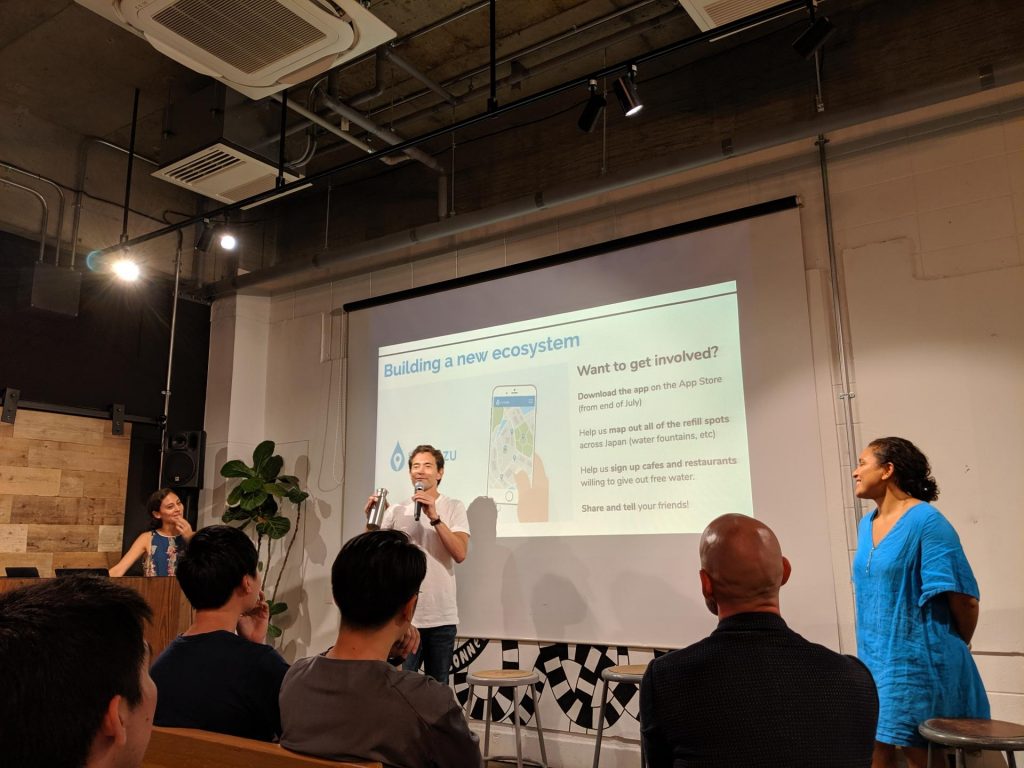Buy anything from a convenience store in Japan and chances are it is wrapped, if not double wrapped, in plastic. It’s ironic that Japan may be one of the cleanest countries with an abundance of fresh drinkable water, but it is also the world’s second-highest user per capita of plastic packaging—and the three million vending machines distributed nationwide don’t help.
In October 2019, a water refill station app called MyMizu launched just as hoards of visitors arrived in Japan for the Rugby World Cup. MyMizu helps people find free spots to refill water bottles such as drinking fountains, restaurants, cafes and businesses that have agreed to provide refills. Users can add new “refill stations” they’ve discovered to the app. In just two weeks, the app had more than 8,000 stations logged and over 5,000 downloads.
We interviewed MyMizu co-founder and humanitarian Robin Lewis, who has big plans to reinvent Japan’s views towards responsible consumption.
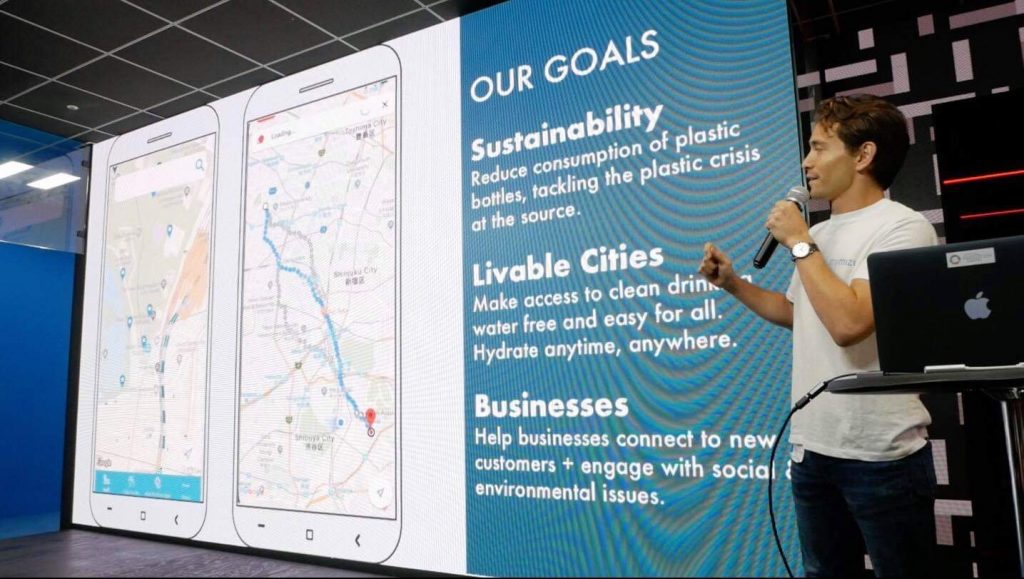
Rie Miyoshi (RM): Where did you get the inspiration to start this app?
Robin Lewis (RL): It all started with a trip to Okinawa and Kagoshima. I was blown away at how beautiful the beaches were, but as soon as we went off-the-beaten track, we started finding more and more rubbish—especially plastic.
I know we are facing unprecedented levels of plastic waste in oceans globally, but seeing this hit home that it was also a major problem here in Japan. The more I started telling people about this, the more people shared photos of coastlines all over the country that were also covered in litter, and I realized this was a national issue.
In Japan, we’re lucky to be surrounded by plentiful clean, drinkable water. Even tap water here is safe and delicious! Yet we buy millions of bottles of water. When I started looking into it, I discovered the scale of the problem. Japan produces over 22 billion PET bottles per year, enough to go around the Earth more than 120 times. Approximately 11% of those bottles are not recycled; they end up being incinerated, going to landfill, or being lost to rivers and oceans. For reference, globally we consume one million bottles per minute, the vast majority of which are not recycled.
It seemed totally crazy that we were paying so much money for something we didn’t really need—bottled water—and that this habit was having an enormous effect on our natural environment. So I decided to try and stop the problem at the source.
While recycling and beach clean-ups—like plogging—are important, cleaning up the mess is only addressing one of the symptoms of a much wider problem. The root cause of both pollution and climate change is overconsumption, and so I wanted to reduce consumption at the source by helping people to refill with free water instead of buying water in plastic bottles. That was the birth of MyMizu.
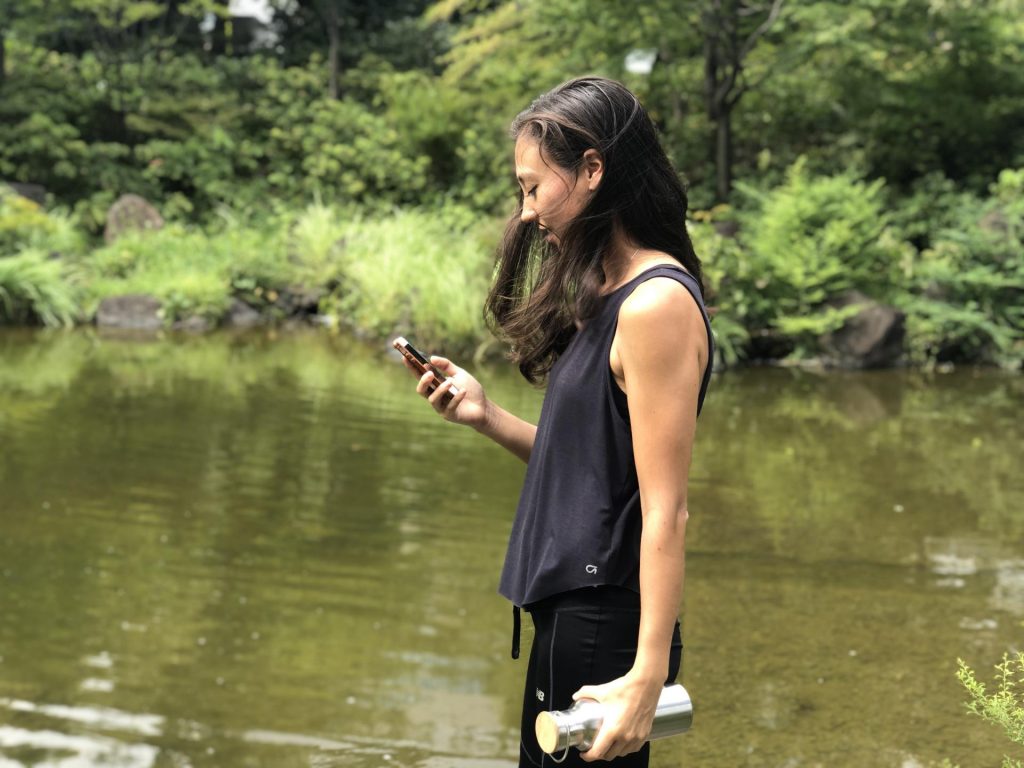
RM: I’ve seen a lot of water fountains around Japan but some of them are quite decrepit. This might turn people off from refilling their bottles and that’s why they end up buying water from convenience stores. What are your thoughts on that?
RL: I can see this being a problem. To tackle this, we have partner businesses like cafes, shops, restaurants and hotels where you can refill your bottle for free so that users can avoid public water fountains altogether if they wish to do so. We also encourage users to upload photos of new refill spots they discover (to help people determine if they want to use them before physically going there). We hope that growing demand for refill spots will also encourage the building of new refill spots and old ones to be better maintained!
There are many beautiful refill spots already on the app, ranging from natural springs to drinking fountains on top of high-rise buildings where you can catch awesome views—there is a lot of choice.
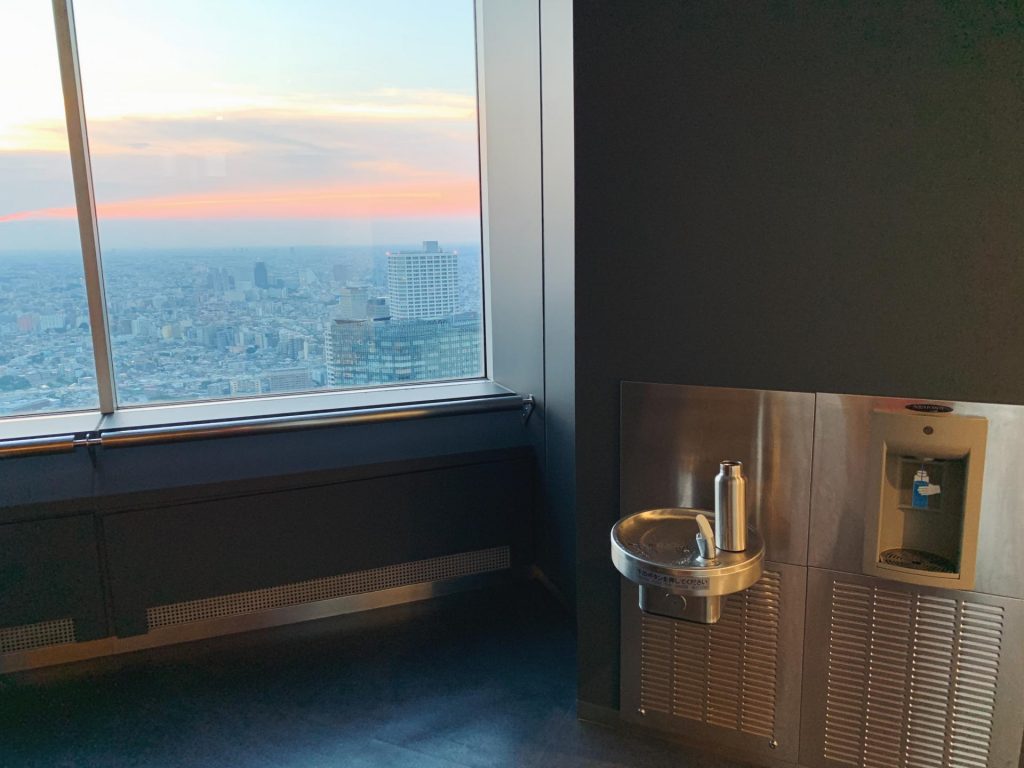
RM: What got you interested in environmental issues?
RL: I’m half Japanese and half British. The 2011 Great East Japan Earthquake and Fukushima crisis made me question what is really important and also fuelled my interest in sustainability, climate change and so on. I spent over half a decade working in humanitarian aid and international development after the earthquake, based in Japan but working in countries like Nepal, Haiti and Mozambique—mainly in post-disaster situations. I now work in the climate change space at an intergovernmental level, while also running a nonprofit called Social Innovation Japan.
RM: Have you met challenges especially as a young entrepreneur fighting against traditional mindsets in the environmental industry?
RL: Yes, there have been and will be challenges—I have been told more than once that MyMizu will never work in Japan. But the response from individuals, companies and government overall has been very positive. We are nothing short of incredibly grateful for this.
There are many environmental initiatives out there, but where we perhaps differ is that we try and make it as fun and engaging as possible. The idea behind MyMizu is that it is not just a service to consume. It is a process of co-creation where we encourage users to be active and contribute to the movement, by adding their own refill points, for example.
The response since launching has been phenomenal. We have had more than a hundred volunteers join us across Japan (we even have a team now in Singapore!), have strong user reviews (my favorite is “it’s better than Pokemon Go!”) and have been so lucky to be supported by so many people out there who share our vision.
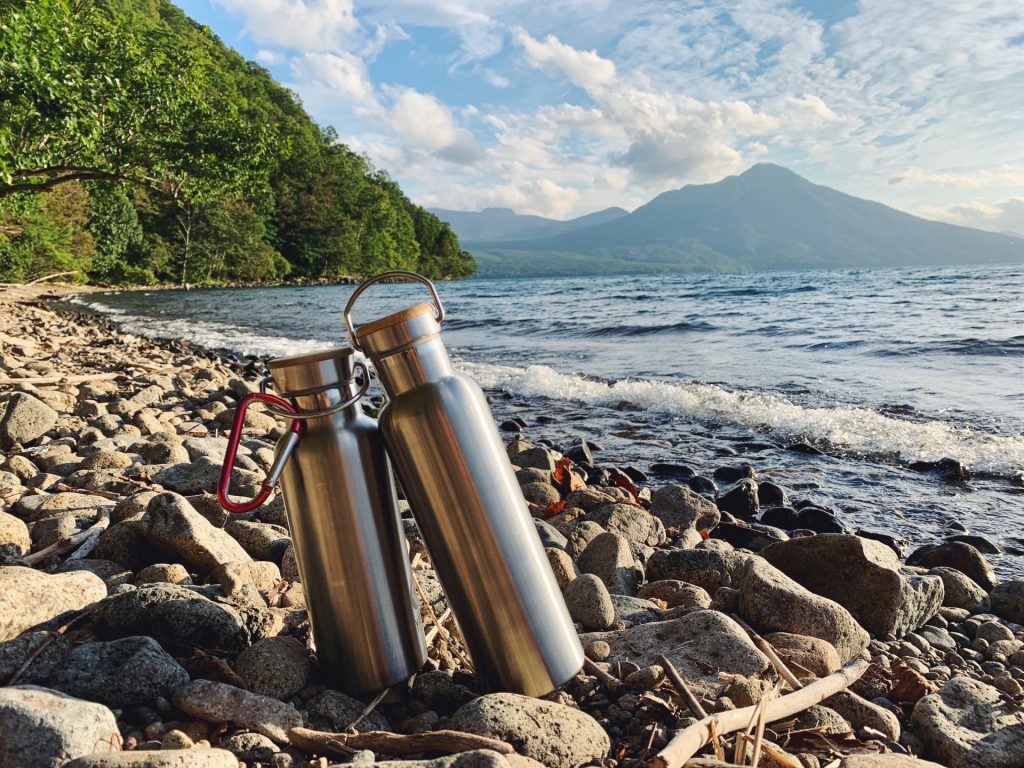
RM: At the rate the country is going right now, where do you see Japan’s environmental situation in 10 to 15 years?
I think we are at the brink of a major change. Not only is consumer awareness around environmental issues (including plastic packaging) on the rise, but we are also seeing positive changes in both government policy and corporate practices regarding sustainability. That being said, there is still a long way to go.
The Tokyo 2020 Olympic and Paralympic Games can be a major opportunity for large-scale change in terms of transitioning towards a greener society, but only if we collectively make the right decisions and capitalize on this opportunity. The world is watching, and the onus is on us to show that we are serious about sustainability.
I believe that Japanese values are very aligned with sustainability; take the concept of mottainai, for example. I’m optimistic that over the next 10 to 15 years, we will see a major shift in a positive direction towards decarbonization and take major steps towards realizing a more sustainable society. Japan has some of the brightest minds in the world, along with incredibly advanced technology and other resources. There is already a lot of activity in this space in Japan, and we are in a unique position to accelerate this and lead the sustainability movement globally.
RM: Will you be adding more features to the app?
RL: Yes! We plan to make it possible to keep track of how many bottles you’ve saved, and how many MyMizu spots you’ve helped log in the app, and are exploring enhancing the app with a review function too (so that users can leave reviews for each refill spot) and the ability to suggest edits to existing data points. We’re also planning to gamify the app to make it even more fun. Stay tuned!
RM: Is MyMizu focusing on primarily being an app or will you be expanding to educate people on responsible consumption through workshops and events?
RL: MyMizu is not just an app—it’s a movement. Education and in-person engagement are critical components of what we are trying to accomplish. In just the past couple of months, we have done more than twenty talks and workshops at schools, universities and companies around sustainability and plastic consumption. This is something that we will scale up going forward.
